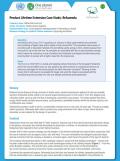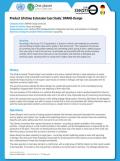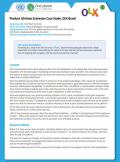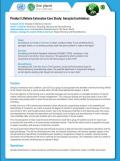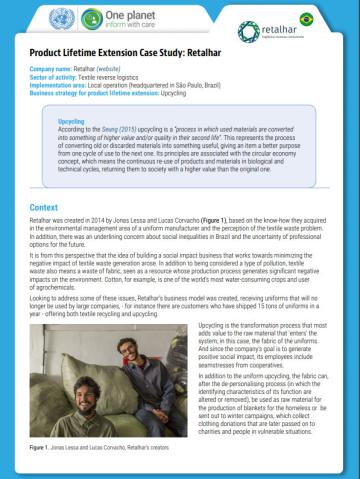
This case study presents a successful business strategy to extend products lifetime. The aim with these case study is to inspire and encourage organisations to shift to more circular models, to improve their business models towards prolonging or extending a product’s lifetime.
This study is focused on the upcycling done by Retalhar. Retalhar was created in 2014 by Jonas Lessa and Lucas Corvacho, based on the know-how they acquired in the environmental management area of a uniform manufacturer and the perception of the textile waste problem. In addition, there was an underlining concern about social inequalities in Brazil and the uncertainty of professional options for the future. It is from this perspective that the idea of building a social impact business that works towards minimizing the negative impact of textile waste generation arose.
This case study is related to The Long View Report in two main aspects:
- Improvement of waste treatment infrastructure, because textile waste is a big problem in the country, Brazilian laws are not effective on encouraging textile waste treatment and upcycling can help solve this issue.
- Recognition of the full potential of the informal sector, since this market is still underdeveloped in the country and promoting this business among society can raise awareness and engage different players on maximizing its potential.

